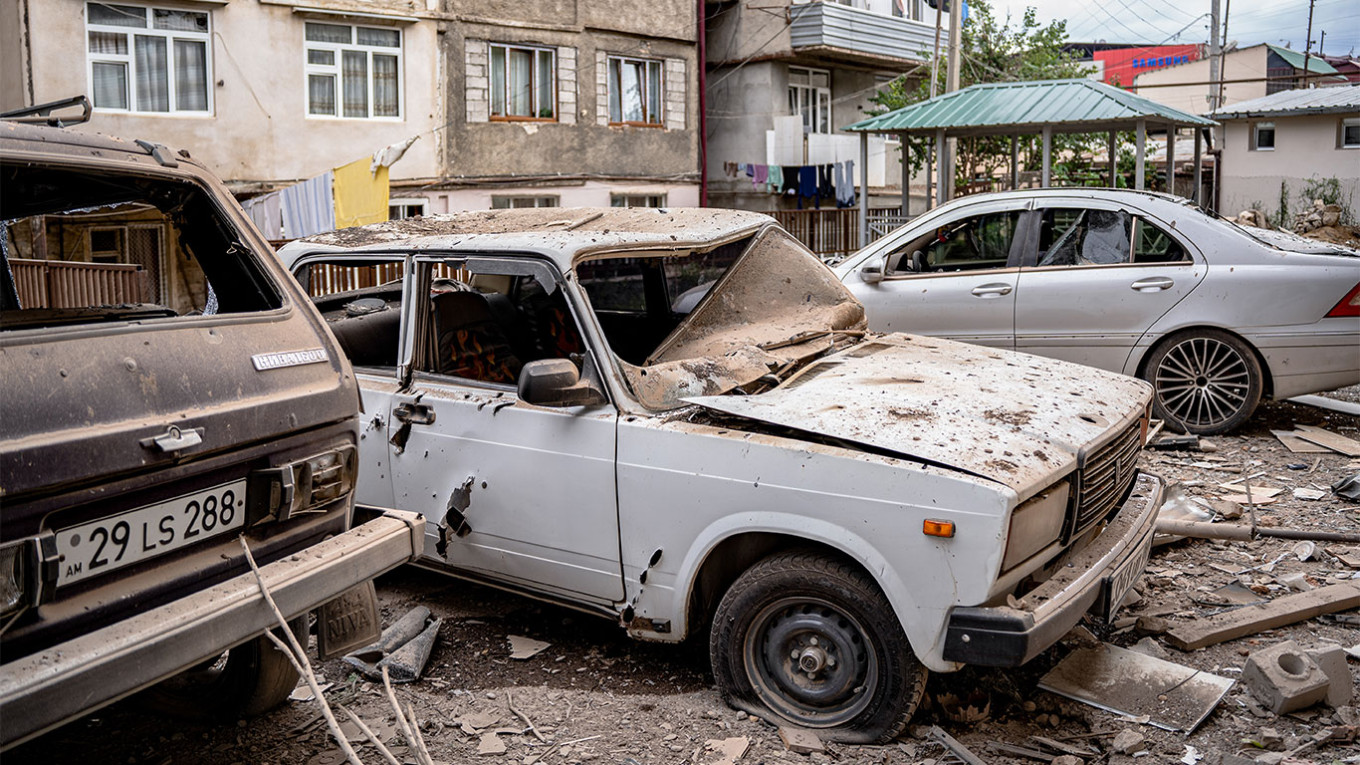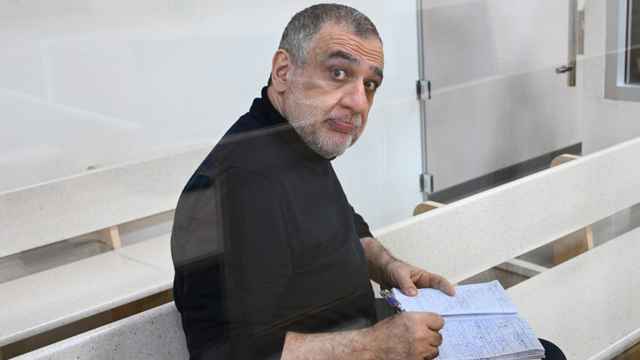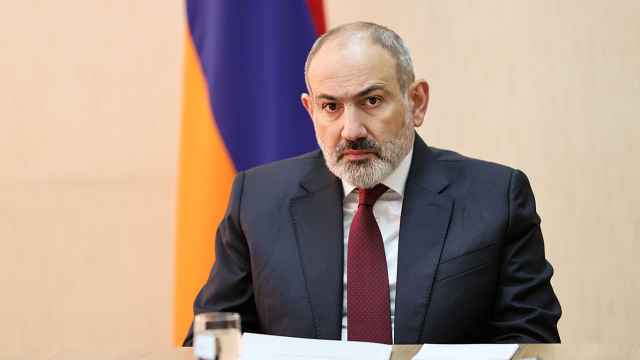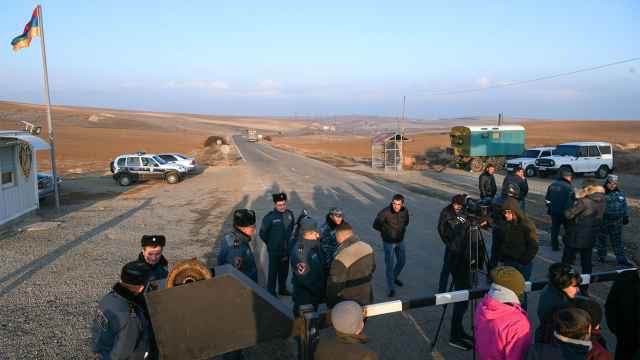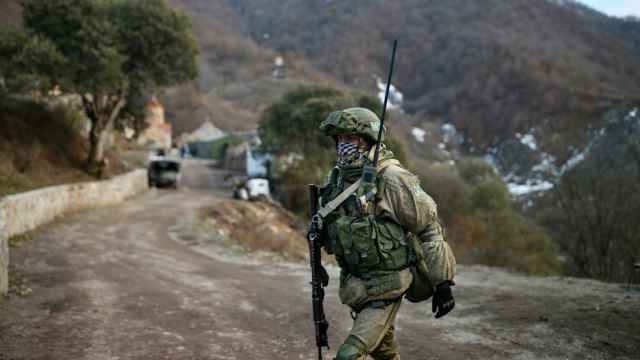The outbreak of fresh hostilities between South Caucasus foes Azerbaijan and Armenia over the disputed territory of Nagorno-Karabakh marks the latest example of Moscow’s diminished sway in the region, experts have said.
Azerbaijan on Tuesday launched a military operation in the majority-Armenian enclave of Nagorno-Karabakh nearly three years after fighting a brutal war with Yerevan over the region.
Video footage posted on social media from Nagorno-Karabakh’s capital of Stepanakert appeared to show the aftermath of shelling in residential areas. Another video published by Azerbaijan’s defense ministry showed what it said was the destruction of an Armenian military radar station in the region.
The outbreak of fighting came as relations between Armenia and Russia, which is supposed to act as a security guarantor, appeared to have become more tense in recent weeks, experts told The Moscow Times.
“After the outbreak of the war in Ukraine, Moscow has not been able to fulfill its obligations and now it has adopted some of the positions of the Azerbaijani side of the conflict,” said Tigran Grigoryan, a Yerevan-based political expert.
“Russia and Azerbaijan appear to have closer relations now than Armenia and Russia,” Grigoryan told The Moscow Times. “Relations between Yerevan and Moscow have been deteriorating for a while now.”
Armenian Prime Minister Nikol Pashinyan on Tuesday urged Russia and the United Nations to take action following the escalation.
"First of all, Russia must take steps and, secondly, we expect the UN Security Council to also take steps," Pashinyan, whose country is in a Moscow-led military alliance, said in televised comments.
The Kremlin said it was concerned over the sharp escalation in Nagorno-Karabakh.
"The main thing is to prevent human casualties. We see that there are these kinds of victims. And the main thing is to convince Yerevan and Baku to come to the negotiating table," Kremlin spokesman Dmitry Peskov told reporters.
Fears of a fresh war have been building in recent months, with Armenia accusing Azerbaijan of a troop build-up and decrying a blockade of its only land link to Nagorno-Karabakh.
According to Baku, regional power brokers Russia and Turkey, which oversee a fragile peacekeeping mission in Nagorno-Karabakh, had been informed about Azerbaijan's military activities in Karabakh in advance.
While Russia said it was in contact with Baku over its "anti-terrorist operations," Moscow also added that Russia was informed just “a few minutes” before the start of hostilities.
Russia’s Foreign Ministry also said that it “urges ”Baku and Yerevan to put “an end to the bloodshed... and a return to a peaceful settlement."
The latest escalation comes nearly three years after a brief but brutal war between Armenia and Azerbaijan over the mountainous region that ended in a ceasefire and the deployment of Russian peacekeepers.
The ex-Soviet Caucasus rivals have been locked in a decades-long dispute over Karabakh with large-scale hostilities breaking out in the 1990s and in 2020.
Azerbaijan justified the mission, citing "systematic" shelling by Armenian-backed forces and accusing them of carrying out "reconnaissance activities" and fortifying defensive positions.
Russia appears to be growing more frustrated as Armenia strengthens its ties with the United States and the European Union.
Last week, Yerevan conducted a joint military exercise with the United States to “increase the level of interoperability of the unit participating in international peacekeeping missions.”
Armenia also held talks with Russia about its intention to enter the jurisdiction of the International Criminal Court, a sensitive issue for Moscow given the court's indictment of Russian President Vladimir Putin over accusations of illegal deportation of Ukrainian children.
“With such steps, Yerevan creates favorable conditions for Washington and Brussels to pursue their hostile policies towards Russia,” Zakharova said Tuesday.
Former Russian President Dmitry Medvedev also posted a statement on Telegram that appeared to describe Pashinyan as someone who "wanted to engage with NATO."
Armenia's foreign ministry condemned Azerbaijani "aggression" against Karabakh.
At least five people have been killed and more than 80 others injured, according to local officials in Nagorno-Karabakh.
"On Sept. 19, Azerbaijan unleashed another large-scale aggression against the people of Nagorno-Karabakh, aiming to complete its policy of ethnic cleansing," Yerevan’s foreign ministry said.
It called on the 2,000 Russian peacekeepers who have been stationed in the region since November 2020 to "take clear and unequivocal steps to stop Azerbaijan's aggression."
Some Azerbaijani politicians suggested that Moscow should withdraw from the region altogether.
"Both the armed forces in Karabakh and the Russian 'peacekeepers' should leave Karabakh," Ali Karimli, the head of the opposition Popular Front party, said in a comment on Facebook.
Former Armenian lawmaker Arman Abovyan told The Moscow Times that even if Russia tries to cool down the escalation between Baku and Yerevan, Azerbaijan is “unlikely to listen to what Moscow says.”
“It is possible that Baku could sign something, but then violate any agreements,” Abovyan said.
A Message from The Moscow Times:
Dear readers,
We are facing unprecedented challenges. Russia's Prosecutor General's Office has designated The Moscow Times as an "undesirable" organization, criminalizing our work and putting our staff at risk of prosecution. This follows our earlier unjust labeling as a "foreign agent."
These actions are direct attempts to silence independent journalism in Russia. The authorities claim our work "discredits the decisions of the Russian leadership." We see things differently: we strive to provide accurate, unbiased reporting on Russia.
We, the journalists of The Moscow Times, refuse to be silenced. But to continue our work, we need your help.
Your support, no matter how small, makes a world of difference. If you can, please support us monthly starting from just $2. It's quick to set up, and every contribution makes a significant impact.
By supporting The Moscow Times, you're defending open, independent journalism in the face of repression. Thank you for standing with us.
Remind me later.



